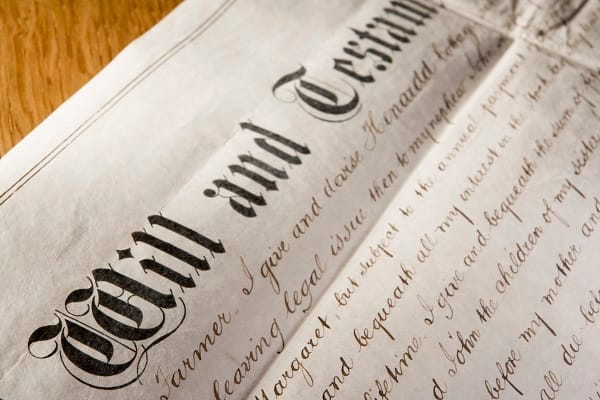When thinking about the future, you need to know how you’ll spread your assets. Learning your state’s last will and testament laws is just the first step. In this article, we’ll explain your available options and how to give everything to your beneficiaries.
Why you need a will
A last will lets you clearly outline where your assets will go after death. However, too many people neglect these arrangements until it’s too late. Here are seven reasons to sort out your will:
- Rapid probate: Without a will, probate can take years to get around. Intestacy laws and even hearsay will determine where your assets end up.
- Fewer disputes: If you don’t have a will, your family might argue over your assets. A will allows you to give clear guidance on your wishes.
- Peace of mind: With a will, you’ll know everything is going according to plan. You won’t have to worry about where your belongings will go.
- Easy property transfer: Property is a complex topic, even with a will. However, you can set up a tenancy in common for easier co-owner transfers.
- Greater clarity: A will is more precise than other informal (or even formal) setups. You’ll have a chance to think deeply about every asset you own.
- Minimize tax burdens: Smart distribution lets you help your family avoid high taxes. For example, assets you give to a spouse are free of estate taxes.
- Appoint guardians: A will also lets you appoint guardians for young family members. It might help to combine this with a guardianship form.
Consider setting up a trust
Trusts can work alongside (or separately from) last wills. These arrangements let you take more control of your assets. Here are the four main types of trusts:
- Revocable living trusts, which you can change as you wish until death.
- Irrevocable trusts, which you usually can’t change without much red tape.
- Charitable trusts, which give some of your assets to charities tax-free.
- Special needs trusts, which help disabled family members or dependents.
- Testamentary trusts, which your last will “activates” upon your death.
Notably, these trusts don’t interfere with someone’s existing government benefits. For example, special needs trusts let you give financial support without putting disabled loved ones above the income threshold.
Make sure you choose your trustee wisely to ensure your assets go where they need to go. You could even select your executor as the trustee.
Designating your beneficiaries
You could even directly designate beneficiaries in your financial accounts. For example, your life insurance policy payout goes to whoever you name. Retirement and payable-on-death accounts similarly let you decide who’ll receive your funds.
On a POD account, you can list the following as a beneficiary:
- Spouse
- Family member
- Friend
- Business
- A charity
You could also name a trust or your estate. However, the latter might add to the lengthy probate process. Every beneficiary you name will get an equal share of your assets.
Notably, POD accounts supersede a will. Changing your will won’t be enough if you reconsider your account beneficiaries. You’ll have to change the account itself.
Appointing an executor
Your executor will be the person who’ll manage your will. They’ll make sure everything happens exactly as you want it to. Legally, they must act in your best interests.
However, you should still choose your executor wisely. If there’s a conflict of interest, you’ll want someone who doesn’t go rogue for their own benefit. Their main responsibilities include:
- Submitting your will to the court
- Valuing your assets
- Paying outstanding debts and taxes
- Distributing assets
- Keeping records
They’ll also potentially deal with family conflicts. For this alone, you should ensure it’s someone relatively neutral. Your pick could easily upset some of your beneficiaries. However, your priority should be choosing someone you trust and who understands the process.
You can appoint a friend, family member, or professional attorney as your executor. They might even be a beneficiary. Talk to your chosen executor before formally appointing them. If they say no for any reason, you need to arrange a backup choice.
Can you distribute assets during your lifetime?
You don’t have to wait until your passing to give away your assets. You could give them to family members as gifts while you’re alive. From 2025, gifts up to $19,000 are tax-free.
By doing this, you’ll lower your estate taxes. You’ll also get to watch your loved ones enjoy their inheritance. As a bonus, nobody can contest your wishes if you’re there to enforce them. You’ll, in effect, be your own executor.
However, you should still pair these distributions with your full estate’s will.
Final thoughts
Planning where your assets will go is never easy. However, combining a last will with the use of trusts and a gift-giving strategy while alive could be very helpful. When writing your will, make sure you use an online template that fits state and federal requirements.






Leave a Comment